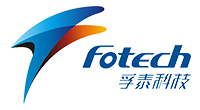How to Charge the Refrigerant Freon?

Freon has a very wide range of applications, and most of the refrigerants for refrigerators and air conditioners are freon. Before charging, we first determine the amount of refrigerant that should be filled into the system. Generally, the charging amount should be infused according to the quantity required by the design document. If there are no specific regulations, you can charge in according to the specific conditions of each device in the system, and then according to the estimated quantity. The operation method of charging freon is as follows.
(1) Prepare a scale, weigh the freon cylinder, and record the total weight. If the self-weight of the cylinder is deducted, it is the net weight of the freon in the cylinder.
(2) Place the steel cylinder on the scale. Use a section of 6mm×1mm red copper pipe, and use a special thread to connect one end to the freon cylinder, and the other end to the multi-purpose port of the compressor suction valve. Do not tighten the nut of the multi-purpose port for the time being, first open the cylinder valve a little, then close it immediately, then drain the air in the connecting pipe, and then tighten the nut.
(3) Freon is charged in the form of wet vapor, so the opening degree of the cylinder valve should be appropriate when opening the cylinder valve to prevent liquid shock from the compressor. At the same time, unscrew the multi-purpose orifice of the compressor suction valve to start filling with refrigerant. If the system is in a vacuum condition, the refrigerant in the cylinder will be automatically injected into the system, and when the pressure in the system is equal to that in the cylinder, the refrigerant will stop entering.
At this time, if the amount of refrigerant in the system has not been added, you can first close the cylinder valve, accumulator outlet valve, expansion valve and compressor suction valve, start the condenser's cooling water pump, and then start the compressor.
In order to prevent the liquid from hitting the cylinder, the suction valve should be opened slowly, and the refrigerant in the system should be pumped into the accumulator. The low-pressure part of the system is evacuated again, and then the cylinder valve is opened to allow the refrigerant to be automatically filled into the system again. This is repeated until the amount of refrigerant required by the system is added.
After the system is evacuated again, you can also open the reservoir outlet valve and the small expansion valve to let the system run normally, then open the cylinder valve, and gradually close the suction valve (that is, open the multi-purpose port), so that the cylinder The refrigerant r22 flows into the system depending on the difference between the pressure in the bottle and the suction pressure (note that no liquid hammer can occur).
When the charging meets the requirements, immediately close the cylinder valve, and then allow the remaining refrigerant in the pipe to be sucked into the system as much as possible, and finally close the multi-purpose channel, stop the compressor, and basically end the refrigerant charging.
In addition to the method of charging refrigerant r22 with multiple ports in the suction valve. It is also possible to directly fill the freon liquid into the system through the multi-purpose port of the discharge valve. The advantage of this method is that the infusion speed is fast and safe. It is suitable for the first time the system is evacuated and filled with refrigerant.
The position of the steel cylinder should be higher than the system's accumulator during filling, and it can enter the system by itself by the pressure difference and height difference between the refrigerant in the cylinder and the system.
When the pressure in the system is higher than 0.3MPa, liquid filling on the high-pressure side should be stopped. If the charge is not enough, it can be changed to charge refrigerant vapor on the suction side. When using the high-pressure side to fill freon, never start the compressor, and pay attention to the exhaust valve not to leak, otherwise liquid hammer will occur.
The refrigerant freon must be strictly implemented in accordance with the standard during the charging process to prevent accidents. If you still have some doubts about the refrigerant charging after reviewing the above content, please contact us for a comprehensive solution.
As a professional refrigerant manufacturer, we are always committed to providing customers with high-quality and safe products. We have a professional production team, and constantly research and develop new technologies to fully control the quality of our products. At the same time, we can also provide effective solution technology and thoughtful one-stop service according to customer needs. If you are interested in our refrigerants, please contact us immediately!


